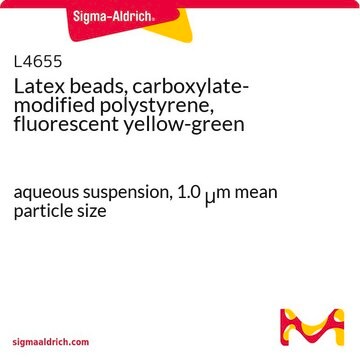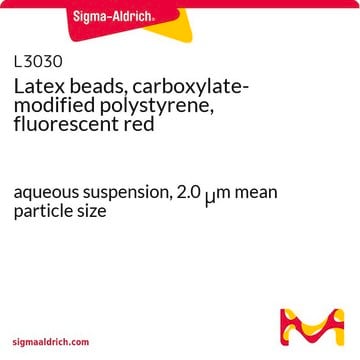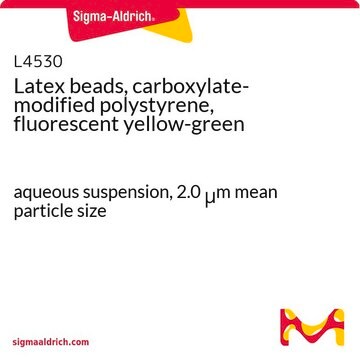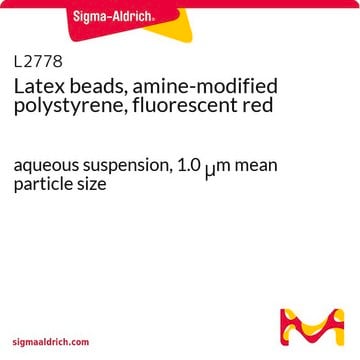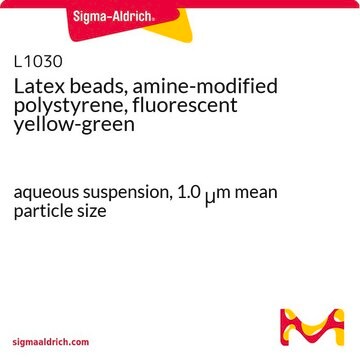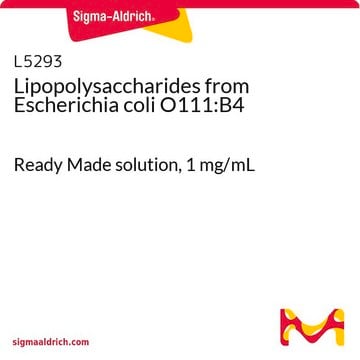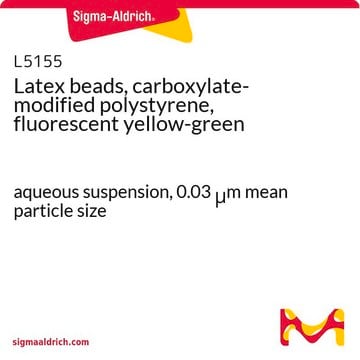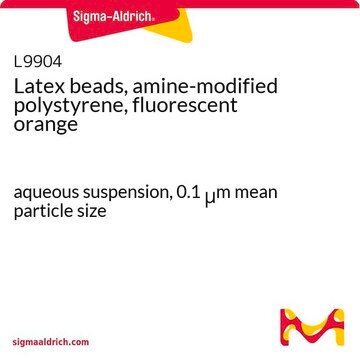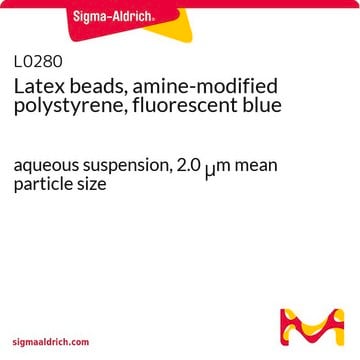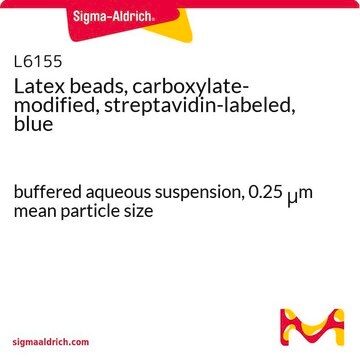L3280
Latex beads, carboxylate-modified polystyrene, fluorescent red
aqueous suspension, 0.5 μm mean particle size
Synonym(s):
Carboxylate Polystyrene Beads, Fluorescent Latex Beads
Sign Into View Organizational & Contract Pricing
All Photos(1)
About This Item
Recommended Products
form
aqueous suspension
composition
Solids, 2.5%
technique(s)
cell based assay: suitable
mean particle size
0.5 μm
fluorescence
λex ~575 nm; λem ~610 nm
application(s)
cell analysis
Looking for similar products? Visit Product Comparison Guide
Application
Carboxylate-modified polystyrene latex beads have been used to collect morphofunctional data about the immune systems of Carabus lefebvrei, a helicophagous Italian endemic ground beetle often used as an indicator of the habitat quality of the Apennines mountain forests. Carboxylate-modified polystyrene latex beads have also been used to inform comparative studies on immunity defense mechanisms of adults and larvae of the coleopteran Cetonischema aeruginosa and to investigate the phagocytic activity of cultured rat thyroid cells.
Latex beads, carboxylate-modified polystyrene, fluorescent red has been used:
- along with Milli-Q for fluid dynamic studies
- along with bile salts for confocal studies
- for particle encapsulation
Storage Class Code
10 - Combustible liquids
WGK
WGK 3
Flash Point(F)
Not applicable
Flash Point(C)
Not applicable
Personal Protective Equipment
dust mask type N95 (US), Eyeshields, Gloves
Certificates of Analysis (COA)
Search for Certificates of Analysis (COA) by entering the products Lot/Batch Number. Lot and Batch Numbers can be found on a product’s label following the words ‘Lot’ or ‘Batch’.
Already Own This Product?
Find documentation for the products that you have recently purchased in the Document Library.
Customers Also Viewed
C A Byersdorfer et al.
Journal of immunology (Baltimore, Md. : 1950), 167(12), 6756-6764 (2001-12-12)
We have used fluorescent latex beads, with or without covalently conjugated OVA, to facilitate study of Ag trafficking in the mouse lung and draining peribronchial lymph node (LN). At 6 h, and up to 48 h after intranasal administration, beads
Passive droplet generation in aqueous two-phase systems with a variable-width microchannel
Choi D, et al.
Soft Matter, 15(23), 4647-4655 (2019)
Adsorption of bile salts to particles allows penetration of intestinal mucus
Macierzanka A, et al.
Soft Matter, 7(18), 8077-8084 (2011)
Daeho Choi et al.
Soft matter, 15(23), 4647-4655 (2019-05-11)
Passive droplet generation for an aqueous two-phase system (ATPS) was performed with a fracture-based variable microchannel. A jet of dextran-rich phase (DEX) in a polyethylene-glycol (PEG)-rich phase was created by focused flow. The width of the inlet channel could be
Adam Macierzanka et al.
PloS one, 9(4), e95274-e95274 (2014-04-24)
The final boundary between digested food and the cells that take up nutrients in the small intestine is a protective layer of mucus. In this work, the microstructural organization and permeability of the intestinal mucus have been determined under conditions
Our team of scientists has experience in all areas of research including Life Science, Material Science, Chemical Synthesis, Chromatography, Analytical and many others.
Contact Technical Service